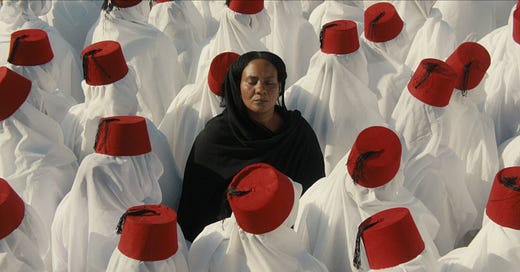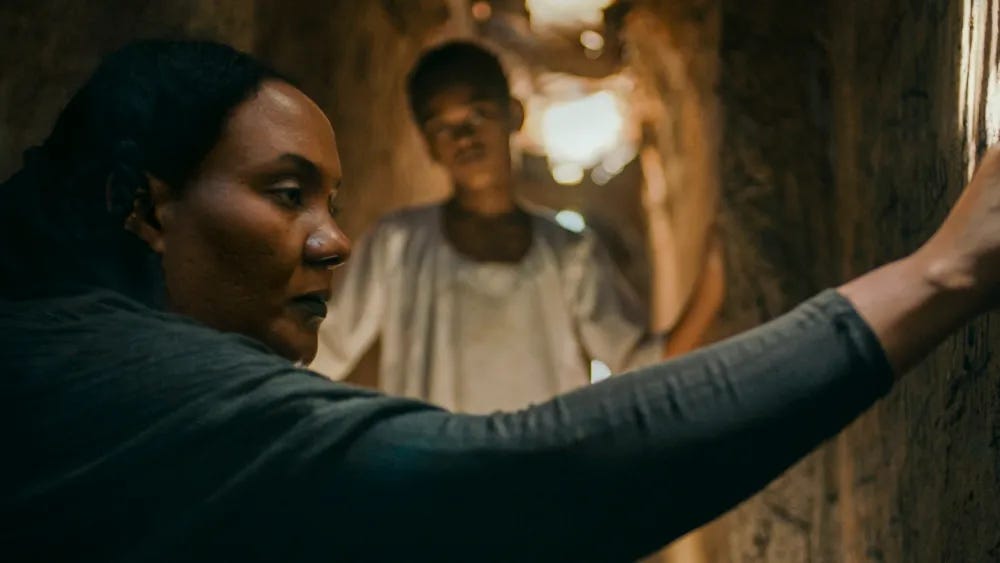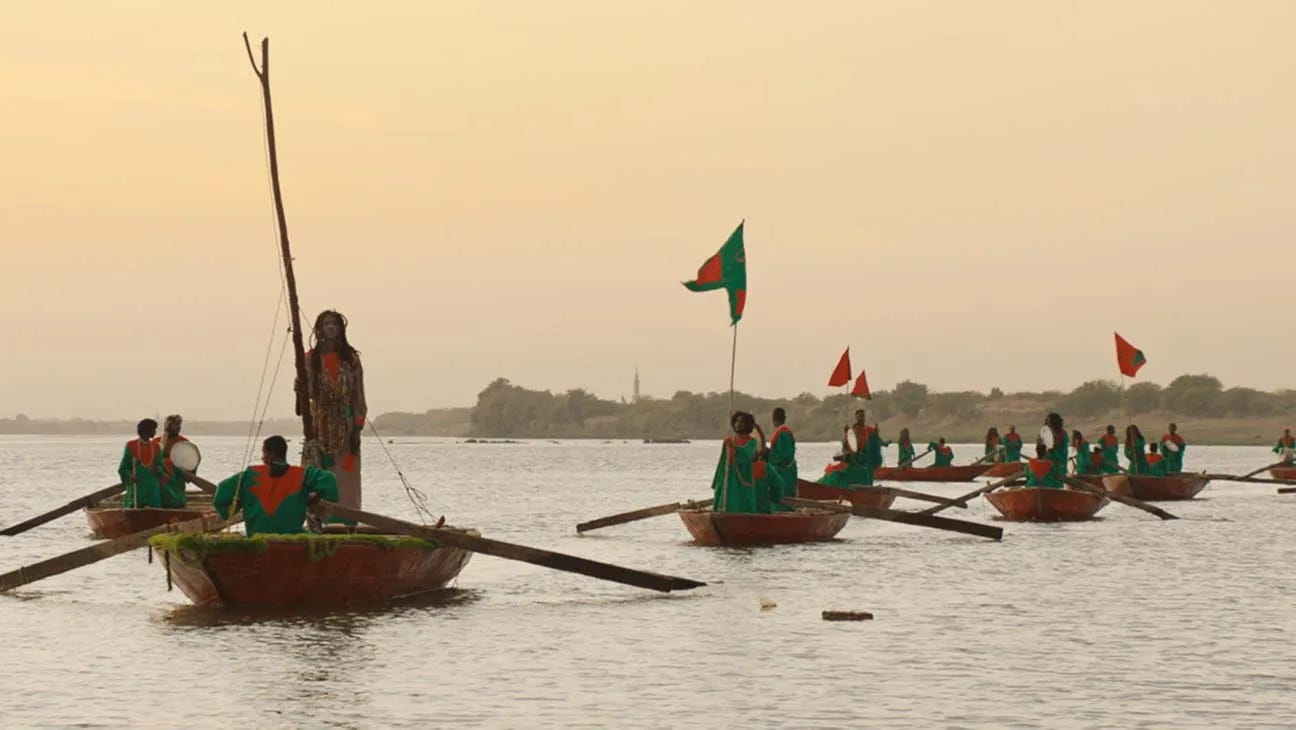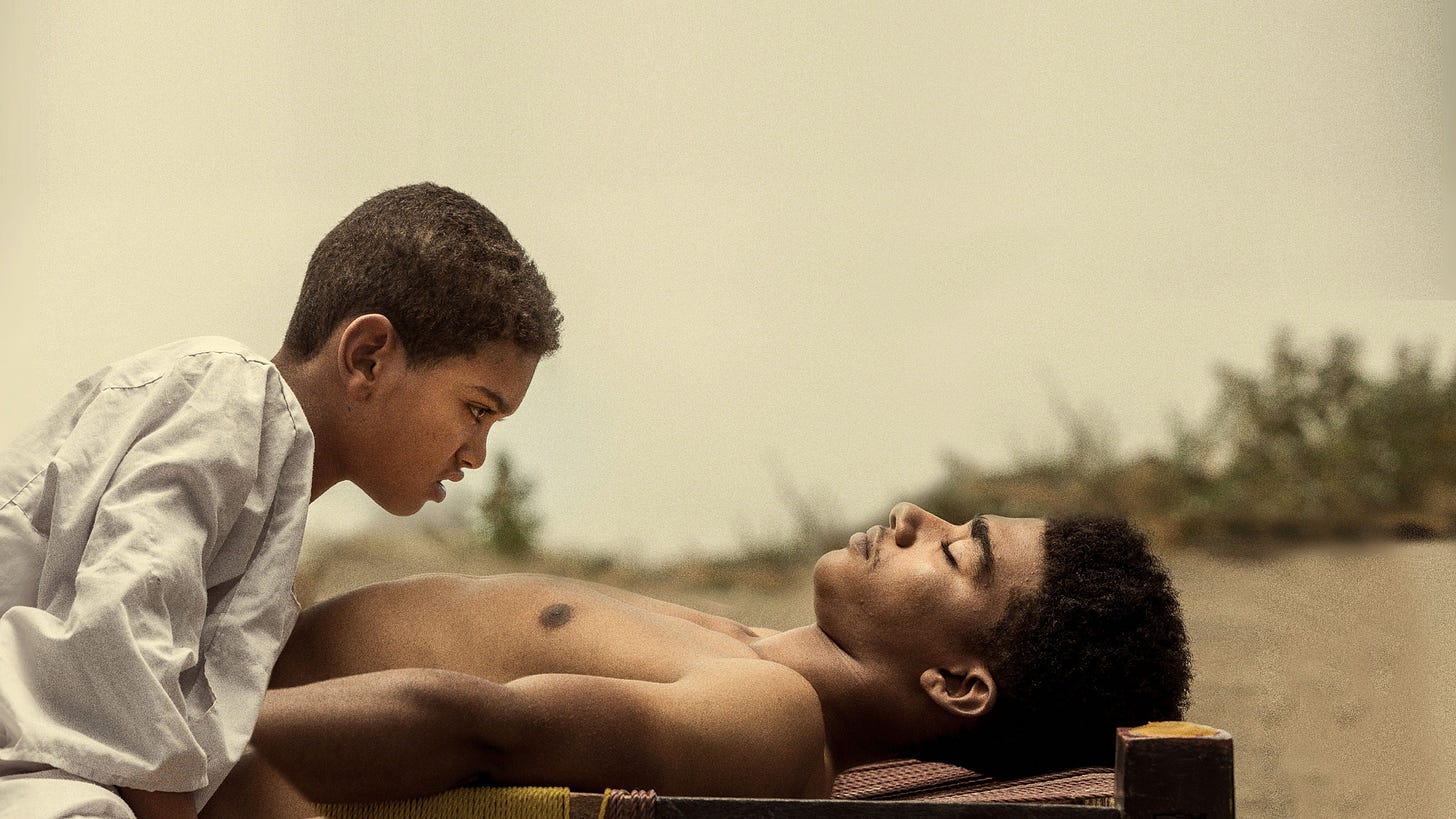Directed by Amjad Abu Alala
Sudan & France, 2019
Of the nine films we have watched this season five have been directorial debuts from the last decade. ReidsonFilm have no specified selection criteria so the reason for this is unclear. We have yet to see a film of the stature of Citizen Kane or with the hard-hitting impact of Reservoir Dogs, but whether we loved them or we didn’t it is reassuring to know that there are new filmmakers out there with a desire to tell their stories on a big screen.
Our fifth debut is the enchantingly photographed You Will Die at Twenty by the Sudanese writer-director Amjad Abu Alala. It isn’t the first time ReidsonFilm have been dazzled by a desert landscape (see our review of Theeb) and here we are again, but this time in Sudan with the terrain bisected by the Nile river valley, and of course the light is vividly luminous.
The film is an adaptation of a short story, Sleeping at the Foot of the Mountain, by Hammour Ziada. Set in a rural village, a new-born baby is taken to receive a blessing from the local Sufi Sheikh, only for an accompanying dervish to collapse as he dances and reaches the count of 20. This is taken as an ominous sign – a sign that the boy, Muzamil, will die when he reaches his twentieth birthday.
We then follow Muzamil as he grows, living in the village: a cloistered upbringing with the close protection of his mother and isolated from the other children. It’s all too much for his father, who abandons Muzamil and his mother apparently leaving in search of work abroad. His mother, Sakina, takes him to the mosque where he is labelled ‘Son of Death’ by his fellow students:
“Son of death, let’s play a fun game. If you don’t die today, you won’t die at all.”
Alienated and alone, Muzamil dedicates his time to memorising the Qur’an. After all, how can he think of a future he’ll never have? As his mother scores off his days on the wall it seems that he is waiting for death until he comes across Sulaiman, a man who has returned to the village after travelling and seeing the wider world. Tired of life himself - he is dying with cancer - he provokes Muzamil, questioning him about the life he has lived. Through old cine film Muzamil catches sight of the world that Sulaiman has witnessed. He switches from resignation to his apparent fate to anger, then defiance.
You Will Die at Twenty is filled with mysterious, abstract moments that makes the experience of watching this film akin to listening to a village fable. The opening sequence shows a dessicated cow carcass in the foreground as the baby Muzamil is carried past in a procession. That shot lingers and from there the frame is always rich with symbols, some explicit, some hidden. Along with the poignant, understated score this transforms what would be a narratively straightforward tale of life in rural Sudan. We also have the presence of Sufism, with the dervishes in their rich, green jalabiyas overseeing events like a Greek chorus.
The cinematography by Sébastien Goepfert is vibrant and vital, with dexterous contrasting of light and shadow. Repeated framing of doors and windows echoes another film from our last season, Abouna. Filmed in neighbouring Chad, the two films share other themes: absent fathers, the fragility of life, and a playful fascination with cinema itself.
Abu Ala’s film does have its flaws. There is a loss of focus in the middle and the story begins to meander, perhaps a reflection of the early passivity of Mazumil himself. There are also quite a few non sequiturs and narrative dead-ends. Some of the film’s characters are too loosely drawn, notably Mazumil’s adolescent sweetheart, Naima: an artful performance by Bonna Khalid is brought to a rapid and abrupt finish. But it is the mother and son (Mustafa Shehata in his first acting role) that provide the emotional ballast here. In particular, Sakina (Islam Mubarak), a stolid presence, perpetually clad in black, who perhaps excessively embraces the status afforded by the death sentence hanging over her son.
Aunt Nafisa: You're wearing black while he's still alive.
Sakina: Well, you always wear white.
Aunt Nafisa: I wear white to mourn my dead son. You wear black to mourn your living son. Or has sadness become a habit?
The film ends on an ambiguous note that could be read as either joyous or tragic. Of course, overshadowing the narrative is the recent history of the Sudanese revolution, ending thirty years of military dictatorship. A time when the title of the film was all too real for many of the country’s young population.
Reids’ Results (out of 100)
C - 68
T - 74
N - 72
S - 75
Thank you for reading Reids on Film. We hope you enjoyed our review and if you did please share with a friend and feel free to leave a comment.
Coming next… Chungking Express (1994)







